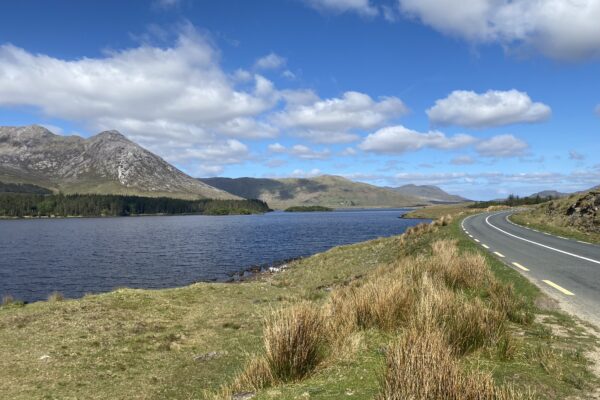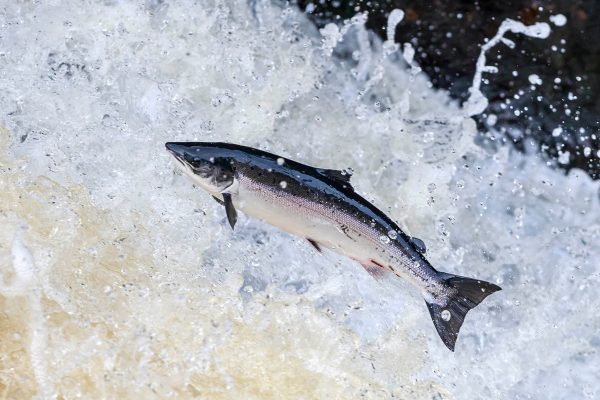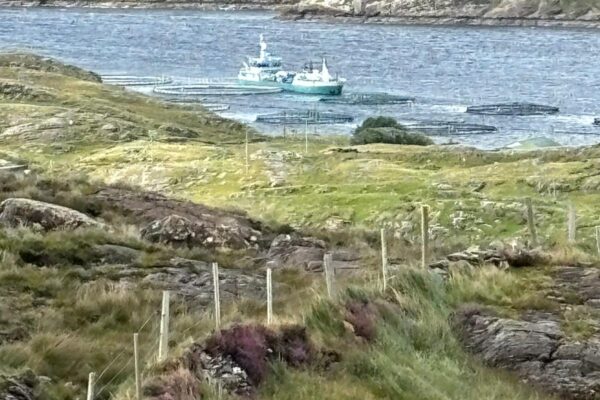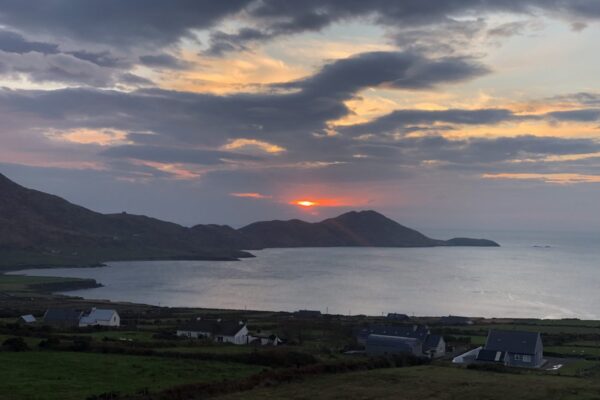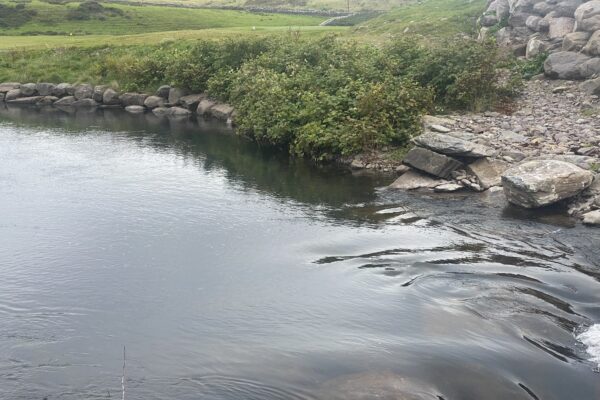-
Conference Proceedings – Salmon Watch Ireland, Athlone 11 October 2025
This special conference edition — “Protecting Wild Salmon: Science, Stewardship, and Accountability” — captures the key discussions and outcomes from our 2025 Athlone Conference. Inside you’ll find: Science and Survival: Dr. Elvira de Eyto on seven decades of data from Burrishoole, and Dr. Paddy Gargan confirming the clear link between sea lice and salmon mortality. Grassroots Action: Maura Brennan’s Nore Vision project showing the power of community-led stewardship. Policy and Law: Emma Armshaw (SWAN) on the incompatibility of open-net salmon farming with EU clean-water directives. A Call to Action: From pollution reporting to citizen science — discover how you can make a difference. Thank you for your continued support in protecting Ireland’s wild salmon. Newsletter Number 22 Final
Continue reading -
Deenish Island – ALAB Determination – Letter to Minister Heydon DAFM
Dear Minister Heyden, On behalf of Salmon Watch Ireland, I write to express our profound concern at the recent determination of the Aquaculture Licences Appeals Board (ALAB). The decision, in our considered view, undermines the protection of Ireland’s wild Atlantic salmon and sea trout and fails to uphold the standards required under Irish and European law. The determination highlights a deeply troubling reality: operators, despite having breached and continuing to breach the terms and conditions of their licences, appear able to operate without sanction. This sets a dangerous precedent, erodes public confidence in the regulatory process, and calls into question the integrity of environmental governance. We are further concerned that: The impacts on wild salmon and sea trout populations, particularly within the Waterville system and other iconic fisheries, were not adequately assessed. The implications for angling tourism — a vital contributor to rural economies — were ignored. Key inspections were delayed, raising doubts as to whether site-specific environmental risks were properly evaluated. The recent transfer of salmon other than smolts, currently under investigation by your Department, raises serious compliance and biosecurity issues that underscore the need for stricter enforcement. Minister, you will recall that in 2019 your Department issued an enforcement order in response to similar breaches, ensuring that aquaculture operators were held to account. The present circumstances demand no less. A comparable order is urgently required to prevent further non-compliance and ecological damage. We must highlight the continuing reliance on Section 19A(4) of the Fisheries (Amendment) Act 1997, which permits aquaculture operators to continue operating under their original licence terms and conditions while renewals have been lodged. In its Deenish determination (AP1/2019), ALAB accepted that condition 2(e) of the licence had been blatantly breached. Harvesting almost four times the legal limit is not a technicality; it is a wholesale disregard for the terms of the licence. Yet ALAB concluded that revoking the statutory entitlement would be “disproportionate.” MOWI has previously sought to amend the terms and conditions of its licence; however, this request was refused by the State. Notwithstanding this refusal, the company has continued to operate in breach of its extant licence and remains in contravention of the legally binding terms and conditions governing its operations. The consequences of this are grave. Section 19A(4) can now be interpreted as a shield that allows operators who are in breach of their licences to continue farming under the protection of the "law", even while those breaches remain unpunished. No fines, no suspensions, no meaningful sanction. The State’s hands are tied, not because it lacks evidence, but because the appeal process itself provides cover for non-compliance. This decision shatters the authority of the Minister and the Department to regulate aquaculture. It tells every operator that licence conditions are little more than suggestions, that breaches can be bargained away, and that even blatant non-compliance carries no real consequence. It empowers those already inclined to disregard the law, while leaving local communities and fragile marine environments unprotected and at risk. The integrity of Ireland’s regulatory regime depends on the principle that a licence is binding and enforceable. But Section 19A(4), as it currently stands, makes a mockery of that principle. Until this provision is repealed, aquaculture operators will continue to enjoy a legal loophole that lets them operate outside the law, immune from sanction, and secure in the knowledge that environmental safeguards can be breached without consequence. The Government has previously undertaken to delete Section 19A(4). That promise must now be honoured. Every day this provision remains in force, the credibility of aquaculture regulation is eroded, public trust is lost, and Ireland’s environmental protections are sacrificed to a system that rewards non-compliance. This undermines public confidence in the regulatory system and creates the perception that aquaculture operators can operate above the law. The provision fatally weakens environmental safeguards by allowing ongoing activity despite established breaches. You have previously undertaken to remove Section 19A(4). We therefore respectfully ask: when will this deletion be implemented? Until this section is repealed, the public will continue to perceive that aquaculture operators can breach conditions without consequence, and that the State’s regulatory regime tolerates non-compliance. The ALAB determination also exposes Ireland to potential breaches of binding European legislation, including: The Habitats Directive (92/43/EEC), requiring the strict protection of species and habitats of Community interest. The Water Framework Directive (2000/60/EC), obliging Member States to prevent deterioration of aquatic ecosystems. The Environmental Impact Assessment Directive (2011/92/EU as amended by 2014/52/EU), mandating rigorous assessment of projects likely to have significant environmental effects. The ALAB decision appears inconsistent with the precautionary principle and threatens both Ireland’s natural heritage and our compliance with EU law. Without corrective action, there is a real risk of irreparable ecological harm and legal exposure at European level. Minister, we therefore respectfully implore you to initiate a judicial review of this ALAB decision, to issue a new enforcement order as was done in 2019, and to honour your commitment to delete Section 19A(4) without delay. We would welcome the opportunity to meet with you at the earliest opportunity to present detailed evidence of our concerns and to work constructively towards stronger safeguards for Ireland’s wild salmonid populations. Thank you for your urgent attention to this matter.
Continue reading -
Salmon Watch Ireland notes the recent online discussions regarding the by catch of salmon by industrial scale pelagic fisheries. We certainly agree that these pelagic fisheries are not being fished in a sustainable manner and the prospect of significant bycatch is certainly cause for concern.
Continue reading -
Newsletter Number 15 – 12 June 2025
NASCO – SALMON AT CRISIS LEVEL SALMON SURVIVAL STRESSOR ANALYSIS - IRELAND APPEAL FOR VOLUNTARY MEASURES CONSERVATION OF SALMON
Continue reading -
Newsletter Number 13 – 20 May 2025
This newsletter discusses the unique relationship between salmon and pearl mussel. It is in everyone's interest to know the link between these species and how we must keep habitat and water quality in a condition that supports vibrant stocks of both species. We also highlight the recent high temperatures and their potential effect on juvenile salmon. We have also provided a link to the Danish River Skyern and note that a declining trend in catches similar to UK and Ireland appears to be taking place.
Continue reading -
Newsletter Issue Number 12 – 11 May 2025
This newsletter deals with two issues which are of concern to all who support salmon conservation in Ireland. The first topic discusses the recent report from Inland Fisheries Ireland relating to the GeneFlow project which seeks to record the extent of introgression by farmed salmon into Ireland's rivers. The second issue discusses and focusses on the disasterous MSW salmon run in 2025 which follows another poor year in 2024. We are asking that all stakeholders adopt a reasonable approach to safe guard the resource. While the commercial sector is opening on 12th May and is quota restricted, it may be time to restrict fishing periods for these fisheries. We contend that commercial fisheries are not consistent with a proper management of the salmon resource and should be discontinued going forward. We are asking all the angling community to think before exploiting salmon above 65cm and to restrict their harvest.
Continue reading -
Latest Update – Issue number 10 – 16 April 2025
This update concerns an update on Straffan Weir and an examination of a refusal to grant information pertaining to mortality figures, stocking rates etc. We have just been informed that our appeal has not been upheld and we will have to appeal to the information commissioner. We fully intend to do this. We certainly feel that the process of public consultation has been effectively usurped by the Department of Agriculture, Food and the Marine. This will certainly be challenged in court if the need arises and certainly would suggest that the public is being effectively blinded to full factual information concerning these public licenses.
Continue reading -
Update 18 March 2025
Waterville Fishery: A look back at research in the period 1980 - 1986 It is calamitous that the fishery now has few sea trout and to repeat this research may not be possible today. Certainly, a situation which can be rescued but only with your help.
Continue reading -
Annacotty Weir and Catch Advice 2025
Salmon Watch Ireland would like to update our supporters on the catch advice for 2025 and Annacotty Weir. Please click on the documents below.
Continue reading -
Update 27 January 2025 – Salmon Watch Ireland
Please find an update from Salmon Watch Ireland. The following topics discussed include the newest study on the removal of salmon farms in British Columbia which appears to have heralded an extremely positive effect on Chum salmon. We also explain the tagging and sampling program at Greenland which is a very important aspect of understanding how salmon migrate and how salmon from both North America and Europe mix in this area. The discovery of a salmon in the Erriff river which was tagged at Greenland is interesting and demonstrates the value of these projects in understanding migration and feeding regimes for MSW salmon.
Continue reading
- 1
- 2



